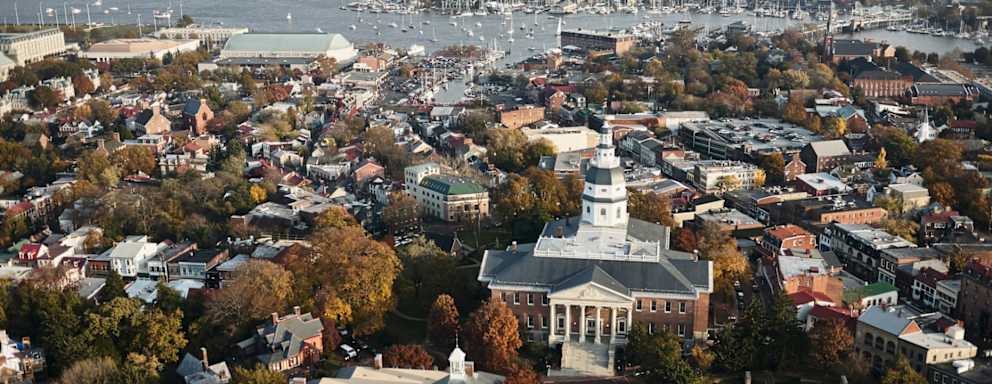Maryland Nursing Programs Get $6 Million from the State to Help Address Nursing Shortage
 Credit: Getty Images/Westend61
Credit: Getty Images/Westend61- Maryland Governor Wes Moore announced that nine nursing programs will receive $5.8 million in funding to address the Maryland nursing shortage.
- The recipients include three community colleges and six universities.
- The funded initiatives include programs to increase the number of nurses with Ph.D. degrees, increase the number of annual nursing graduates by 364, and develop or enhance certificate programs.
Maryland, like other states, is experiencing a significant nursing shortage. Now the state’s government is stepping in with nearly $6 million in grants for several nursing programs to help combat the shortage, with a particular eye toward underserved areas.
“The grants allow for new and innovative ideas that will continue to develop and expand health care opportunities in Maryland, which will positively impact our workforce and the state’s economy,” said Governor Moore in a statement.
Also, in the statement, Maryland Higher Education Commission Acting Secretary Sanjay Rai commented on the potential reach of the programs.
“The ideas submitted will not only increase enrollment and establish accelerated nursing programs, but will also create new programs to educate geographically underserved nursing students in western Maryland,” Rai said.
Funded Programs
The funding recipients include:
- Bowie State University
- Cecil College
- Community College of Baltimore County
- Frostburg State University
- Johns Hopkins University
- Notre Dame of Maryland University
- Prince George’s Community College
- Salisbury University
- University of Maryland, Baltimore
Each program is expected to address the Maryland nursing shortage through a different strategy. Some address current nursing shortages by adding new slots to nursing programs or helping students graduate and enter the workforce faster.
For example, the Community College of Baltimore County, which received approximately $1 million, will add 30 slots to its LPN-to-ADN program — a pathway for licensed practical nurses (LPNs) to earn their associate degree in nursing (ADN). Cecil College will add an accelerated nursing program to its offerings. Another university nursing program will receive resources to help nursing students prepare for examinations and board testing.
Many schools cannot add new student slots because there are not enough nursing teachers. To help address this facet of the nursing shortage, Bowie State, the oldest historically black college or university (HBCU) in Maryland, will create a program to help nurses plan for a Ph.D. to increase the number of nursing faculty in the future.
Another program will help address the need for clinical placement slots and for healthcare services. It will create a nurse-managed health center to help ensure high-quality clinical placements are available to nursing students.
For nursing career development, the funding will also support the development of a new certification in real-world data and pragmatic research and enhancements to an existing nurse educator certificate program.
The final funded project will expand Leading Nursing Forward. The site is a collaboration between Salisbury University and the University of Maryland School of Nursing. It provides a clearinghouse for information about nursing education and nurse education careers.
Specifics on the Maryland Nursing Shortage
The Maryland Hospital Association (MHA) reported in 2022 that 1 in every 4 hospital nursing positions and more than 1 in 3 LPN positions are vacant. By 2035, the state will need 13,800 more registered nurses and 9,200 more licensed practical nurses.
Maryland has 8.35 nurses per 1,000 state inhabitants, below the U.S. average of 9.19. This makes it 14 from the bottom in the nurse/population ratio.
Many Maryland institutions are already offering innovative responses to the nursing shortage. Notre Dame of Maryland University and Mount St. Mary’s University are partnering to offer health sciences students a dual-degree program. Health sciences students at Mount St. Mary’s can graduate into a 15-month BSN program at Notre Dame.
The University of Maryland Medical System and the University of Maryland nursing school are piloting a practicum-to-practice program that makes the transition from education to work easier. Nursing students can complete their final practicum at one of three university hospitals in the unit where they want to practice. If they complete the practicum successfully, they are hired into the unit.
Adventist Health Care is exploring 10-hour or 8-hour shifts rather than the traditional 12-hour shift. This may relieve stress and provide a better work-life balance for nurses.
During the COVID-19 pandemic, the University of Maryland nursing school developed an Academy of Clinical Essentials program. Small groups of nursing students work with a hospital nurse for a 12-week accelerated practicum each semester. Students are assigned to work with patients and perform basic tasks under supervision. While it was developed to help ease staff burdens during the pandemic, future iterations could help address the overall nursing shortage.